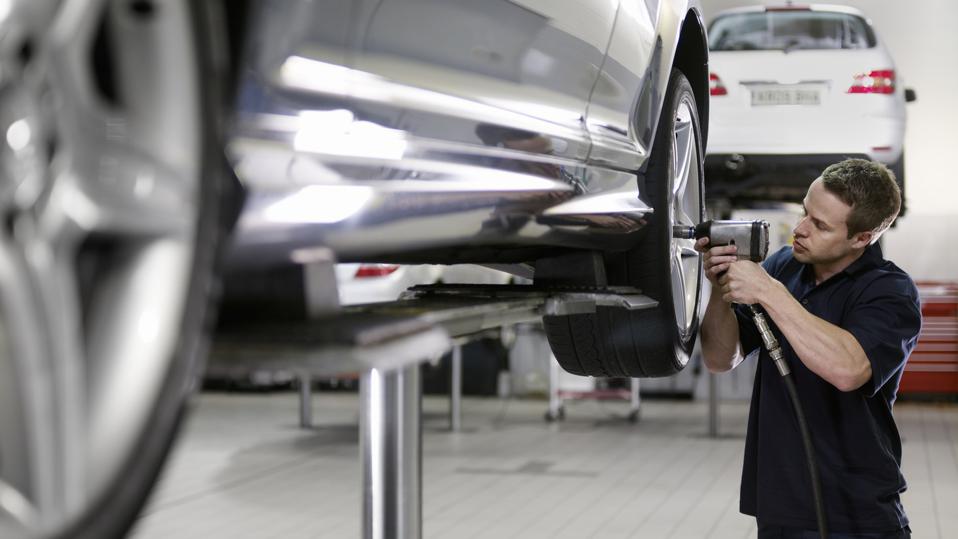One of the main deciding factors in whether or not purchasing an extended warranty makes sense is how the anticipated repair costs compare to how much you would pay for the warranty. If repair costs are low, it typically doesn’t make sense to purchase an extended warranty.
However, if you expect high repair costs, an extended warranty can actually save you money in the long run. Let’s look at the numbers to see what that comparison might look like.
When Are You Responsible for Car Repairs?
This might seem like a strange question to ask, but there is a period after buying a new car when repairs are covered under the manufacturer’s warranty. While they won’t cover repairs for damage after car accidents or any abnormal use, a manufacturer’s warranty will cover unexpected parts failures.
These warranties have a duration based on time and mileage and typically last 3-5 years (36,000-50,000 miles), with some manufacturers offering 10-year (100,000 miles) warranties. Before these warranties expire, you’re rarely responsible for major repairs.
Click here – Is Own-Occupation Disability Insurance Right For Me?
Cost of Repairs Without a Warranty
The cost of repairs is based on the cost of parts as well as the labor required for the mechanic to replace them and varies greatly between different makes, models, and model years. The more expensive the parts and the harder it is to remove the broken one and install a new one, the higher the cost of repairs will be. The cost of replacing a windshield is cheaper than a transmission for example. Similarly, cars with cheap, easily replaced parts often have low repair costs.
Costs depend on which specific car you drive and which parts need repairs, and there can be a very wide range in average repair costs. Some repairs have prices as low as $200, while others can require repairs costing over $5,000. For instance, the 5-year average cost of repairs for a 2010 Audi A4 is $5,515, while the average cost to repair a problem triggering the check engine light in a Mazda is only $285.
Click here – How Home Insurance Rates Are Decided And 5 Tips For Keeping Yours Low
Warranty Premium Costs
Warranty premiums can vary quite a bit as well, depending on the length of duration, level of coverage, and any additional options you choose. Prices can range from $100 to over $4,000, with most of the better plans falling in the $1,000-$4,000 range and an average of $2,500 for the premiums.
In addition to the premiums, you will likely have to pay a deductible every time you take your car in for repairs covered under your warranty. In most cases, this is around $100, though some warranties have higher or lower deductibles depending on other factors.
In general, the price of an extended warranty is driven by your desired level of coverage, the make and model of your vehicle, how long the warranty lasts, how old your vehicle is, and the number of miles on your vehicle. Extended warranty plans with higher levels of coverage and longer warranty durations on old, high-mileage vehicles that are typically expensive to repair often have the highest premiums. Still, these are also the warranties that offer the most value.
When looking at different extended warranties, you want to be able to do a thorough evaluation of the company you’re considering and the other plans they offer to ensure they meet your needs. If you can get a lower-priced extended warranty that still provides a good level of coverage for your vehicle, that’s typically the best option. However, you also need to consider additional costs, like deductibles.
